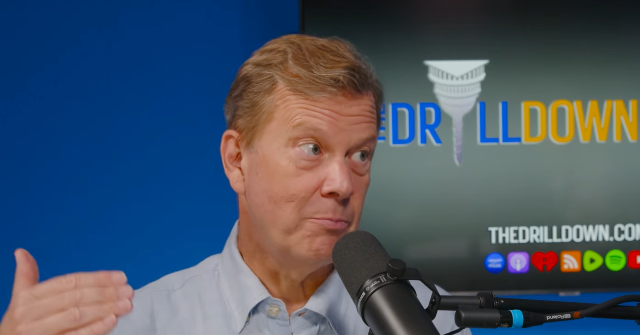President Donald Trump just blew up Iran’s nuclear program. That was the easy part.
What Trump has done in arranging a tenuous ceasefire between Iran and Israel, after hammering the table with 14 MOPs dropped on Iran’s most critical underground nuclear enrichment plants, is “a return to 19th Century Great Power projection,” says author and investigative reporter Peter Schweizer on the most recent episode of The Drill Down podcast. Co-host Eric Eggers adds, “the rizz is back.”
But success in diplomacy in the Middle East has never been simple, lasting, or without causing other problems.
U.S. foreign policy there has for decades broken down along rival lines of neo-conservativism versus isolationism. Trump’s disruption of this divide was to bomb Iran into making a deal without pushing for regime change, Schweizer says. With a commitment from the U.S. to support its Israeli ally militarily without demonizing the Iranians is a position that will satisfy neither the “no more wars” isolationists nor “nation-building neocons.”
Back in 2016, Trump’s primary Republican opponent Jeb Bush famously said that voting for Trump was voting for chaos. But, as Schweizer sees the events of the past two weeks, “there is method to the madness.”
Schweizer asks to those who are criticizing Trump’s military action, “Does it bother you if Iran has the bomb?”
Trump, after all, in his first term negotiated the Abraham Accords that normalized relationships between Israel and several of its more moderate Arab neighbors, which threw his critics on the left and the right for a loop. Many observers believe Iran instigated the October 7, 2023 attack on Israel from Gaza to foil efforts at bringing Saudi Arabia into the Abraham Accords arrangement. So, is there really hope for Iran, the most implacable of enemies to the US since the 1970s, to submit to a peace deal?
Well, perhaps there is if its ambitions of having nuclear weapons are destroyed.
Eggers notes the adage that “today’s problems are yesterday’s solutions.” Iran’s nuclear journey began back after World War II through a program of the Eisenhower administration called “Atoms for Peace” encouraging other nations to explore nuclear energy. Iran was then peaceful, and an ally. Fast-forward to 1979, the ayatollah, and 52 American hostages and things have not been the same since. Iran has been working towards enriching uranium well past civil energy use for many years.
The 2015 deal negotiated by the Obama administration claimed to prevent Iran’s development of nuclear weapons, but Trump set this deal aside when he came into office two years later. Biden re-instated it in 2021, but it’s clear from intelligence about Iran’s nuclear program that it was proceeding rapidly, agreement or not.
Trump was uncharacteristically blunt, even for him, in criticizing both Israel and Iran for getting in some last minute bombing and missile firing after the ceasefire went into effect, telling reporters outside the White House, “We basically have two countries that have been fighting so long and so hard that they don’t know what the f— they’re doing.”
Schweizer wrote extensively about Hillary Clinton’s tenure as Secretary of State in his 2015 book, Clinton Cash. He says it was she who opened the door to changing US-Iran policy, which allowed her successor John Kerry to negotiate the Obama administration’s failed deal. He notes that Bill Clinton was paid handsomely for speeches by the Swedish telecom company Ericsson, which was hoping to do business in Iran. Furthermore, one of the Clinton Foundation’s largest donors was Victor Pinchuk, a Ukrainian oligarch with deep connections in Iran.
For more from Peter Schweizer, subscribe to The DrillDown podcast.
Read the full article here
